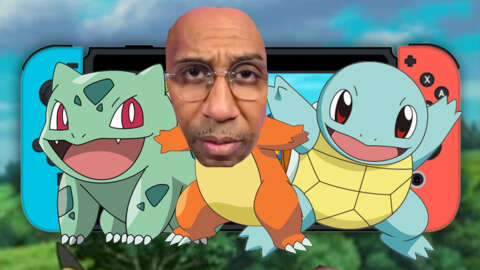ESPN Personality Stephen A. Smith’s Charmander Choice Sparks Pokemon Debate
ESPN personality Stephen A. Smith is known for his commentary on professional sports, but recently, he made headlines for stepping away from that arena to discuss something quite different – Pokemon. It all started when a fan asked him on social media platform X (formerly known as Twitter) about his choice between the three original starter Pokemon: Bulbasaur, Charmander, and Squirtle.
In a YouTube video from The Stephen A. Smith Show, Smith’s unfamiliarity with the world of Pokemon was apparent, as he struggled to pronounce the names of the pocket monsters and initially didn’t know where they were from. However, after some deliberation, Smith ultimately chose Charmander as his favorite, stating that it reminds him of himself because of the creature’s forehead.
For those unfamiliar with the Pokemon franchise, Bulbasaur, Charmander, and Squirtle are the starter Pokemon for Pokemon Red and Blue, the first generation of the popular video game series. This choice has sparked a debate among fans, many of whom have strong opinions on which starter Pokemon is the best and why.
In the world of Pokemon, the choice of a starter Pokemon is a personal and crucial decision for players as it determines the path of their journey and the types of Pokemon they encounter along the way. The decision also reflects the player’s personality and style of play, making it a topic of much discussion and debate among fans.
Opinions on the best starter Pokemon vary widely, with some fans preferring the grass-type Bulbasaur, others favoring the fire-type Charmander, and still others standing by the water-type Squirtle. The debate has even led to online polls and social media discussions, with fans passionately defending their chosen starter Pokemon.
In the end, while Stephen A. Smith’s choice of Charmander may have sparked a debate, it has also brought attention to the enduring popularity of the Pokemon franchise and the passionate fan base it has cultivated over the years.


